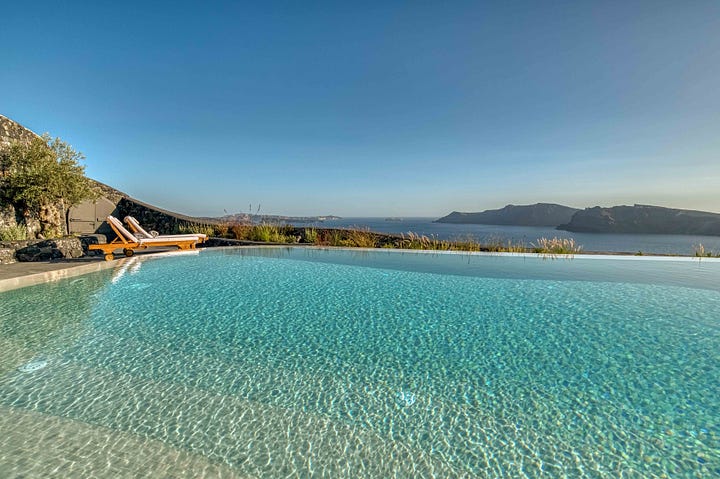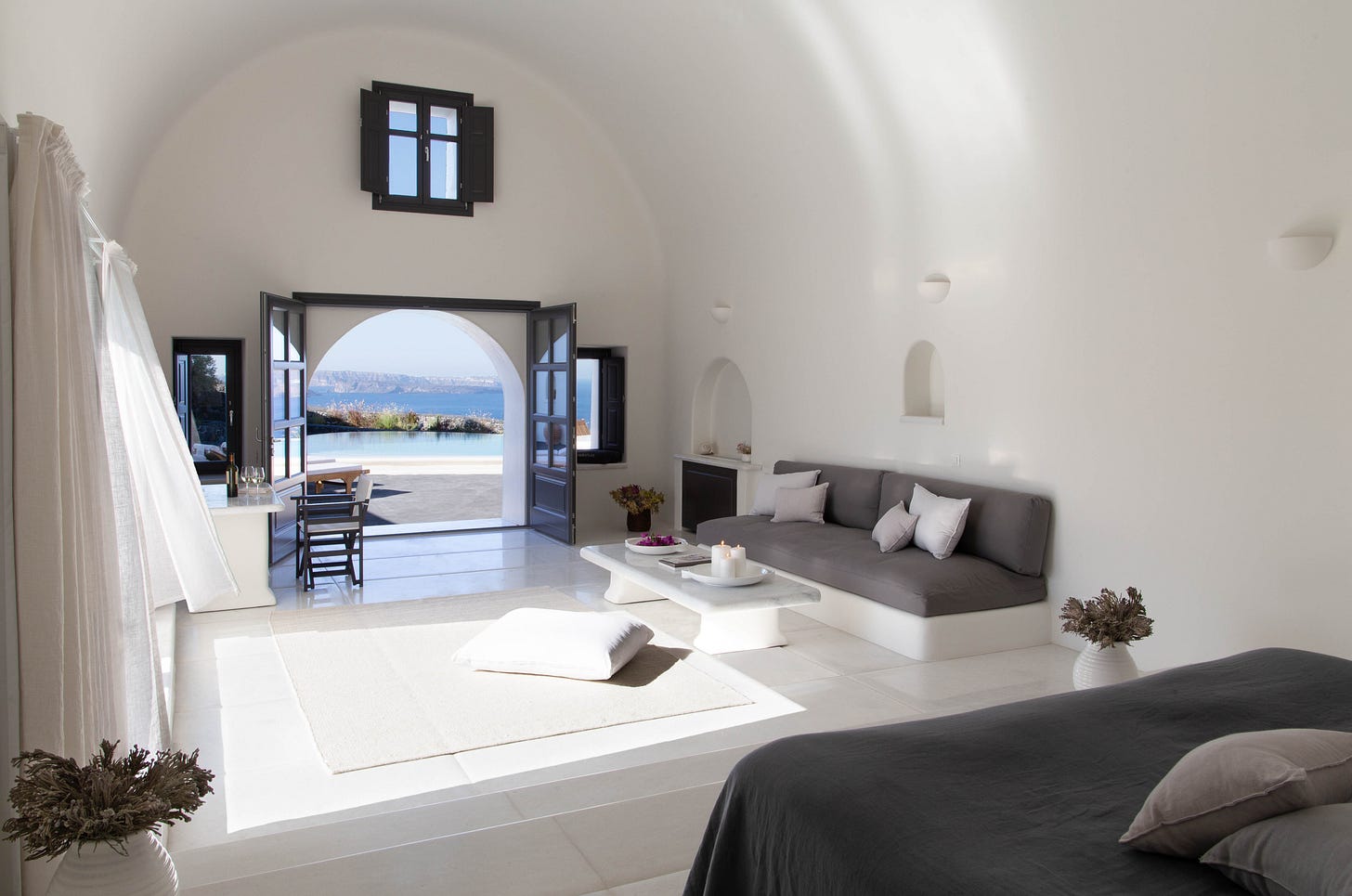Floating Villa of the Heart
Meditating on the architecture of memory at my favorite hotel on earth
This edition looks best in your browser or on the Substack app
You’re reading Buzzcut, a newsletter of close-cropped commentary on travel, style, history, and nature by writer, strategist, and eternal philhellene Zander Abranowicz.
Roving Desk
A note from the field
Floating Villa of the Heart
There is the olive tree, there is the pool. Hundreds of feet below, the broad blue face of the caldera, encircled by treeless landforms, remnants of the volcano that long ago buried the island’s ancient Minoan city, terrorized Crete, cast fearsome rainstorms over Egypt, and withered crops in China. On Santorini, the gods left evidence of their raw materials — fire, water, earth, air — undiluted and sanctified for eternity by the mythic Greek light.
I call this place home. Specifically, this hotel: Perivolas. The word means “outskirts.” This is where fishermen, farmers, and shepherds once cultivated the crops that fed Oia, a cluster of white cave houses clinging, with the audacity of a mountain goat, to these wild cliffs. Oia is less a village than a vision, the kind of place invented by Marco Polo for the entertainment of Kublai Khan. I do not live here. At most, I spend a few weeks each year in Perivolas’s quiet confines, the guest of its proprietors, old family friends who’ve become family. Still, I call Perivolas home because here, I wish to be nowhere else. Its architecture, service, and setting rebuke the complexity of modern life, making anything but simplicity seem crass.
After thirty-three years, I recognize every niche, every vine of bougainvillea, every patch of reflected light across the surface of the iconic infinity pool. Some rooms I could navigate blind. There is tiny Room 8, where, in 1986, my parents spent their first night on Santorini, and where, in 2010, after graduating high school, I slept my first time here alone after backpacking down the Cyclades. With each arrival, I find more to map. Costis Psychas, steward of Perivolas, and my godfather, has a superhuman capacity to carve out evermore spacious dwellings from this inhospitable terrain. Last summer, I stayed in his latest: the Floating Villa. He says it will be his last. Time will tell.
The Floating Villa sits between two pools. Gazing out from the terrace, it seems that the entire compound is suspended over the caldera, joining the surrounding islands — Aspronisi, Therasia, Palea Kameni, Nea Kameni — as they hover in ether when the horizon fades in the afternoon light. That light. It gilds every surface like the hand of King Midas: the sculpted white plaster; the Naxian marble cut into vast, quilted slabs on the floor; the walls of black igneous rock that frame the view and muffle all suggestion of outside human life, leaving only the sound of trickling water, and a panoramic view of my childhood.
I sit on the terrace and note every detail. I want to be able to reconstruct the Floating Villa, in miniature, when I’m far away. I want to carve its sweeping arches into the interior of my being, so in moments of trouble it will invite me in, reminding me that home isn’t where I come from, it’s where I go when I close my eyes.





Something you should know
A sharp fact for your cocktail party quiver
T.S. Eliot and C.S. Lewis double-dated with their wives, twice, in the late 1950s





